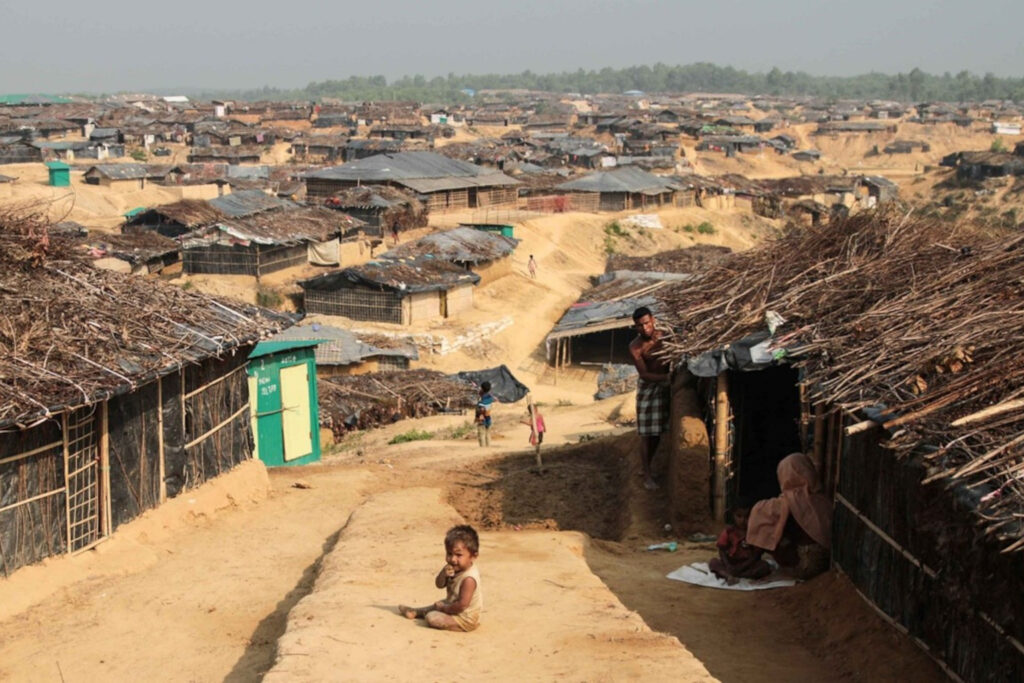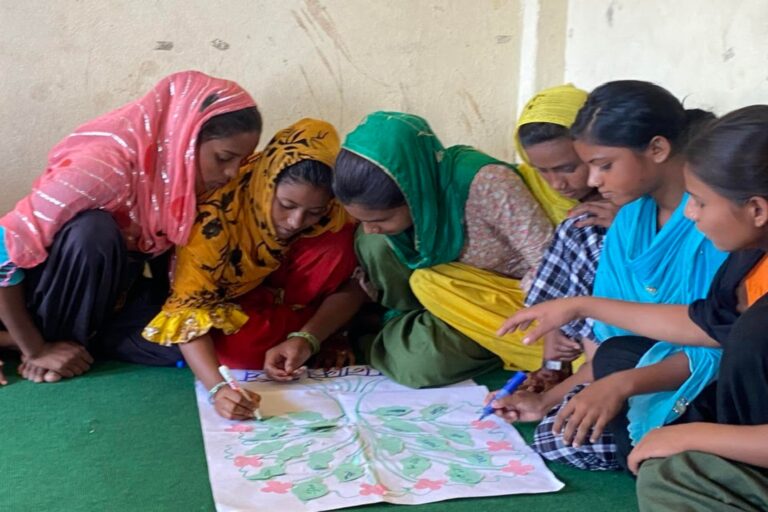Evidently, for quite a long time, the protracted Palestinian refugee crisis has not only condemned millions of Palestinians to a life of indescribable suffering but also kept the Middle East destabilized and much more volatile than any other region across the world. The refugee crisis has directly or indirectly contributed to the outbreak of numerous wars within host states, including the War of Attrition (1967-1970), the Jordanian Civil War (1970-1971) and the Lebanon War (1975-1990). Concurrently, the UN Special Rapporteur on Extreme Poverty and Human Rights, Olivier De Schutter, warned in May 2023 that the Rohingyas—the most persecuted people in the world—are at the risk of becoming ‘new Palestinians’ due to the lack of international funding for their survival. Thus, alarm bells should have reverberated for the international community.
During the Arab–Israeli War of 1948-1949 and 1967, hundreds of thousands of Palestinians were expelled from their homeland en masse by Israel. Till now, Palestinians have not been able to return to their homeland, and more than 5.9 million Palestinian refugees continue to reside in Jordan, Syria, Lebanon, Saudi Arabia, Israeli-occupied West Bank and Gaza Strip, and other states with no prospects of repatriation to their homeland. While the international community has failed to find a just solution to the Palestinian refugee crisis over the past eight decades, another refugee crisis similar to the Palestinians has emerged at the confluence between South Asia and Southeast Asia in the southeastern region of Bangladesh.
The Rohingyas and the Palestinians share certain similarities. Like the Palestinians, the Rohingyas have been subjected to state-sponsored persecution, violence, pogroms and ethnic cleansing, and genocide in their homeland located in the northern part of the Rakhine State in Myanmar. Both have also been expelled from their homeland; the Rohingyas in numerous waves: 1978, 1991-1992, 2012, 2015 and 2016-2018. Unfortunately, just as the Western-led international community has failed the Palestinians, they are failing the Rohingyas in finding a political solution to the crisis, facilitating the repatriation of its refugees, and providing adequate funds for fulfilling their basic needs. Consequently, Bangladesh—host of the world’s largest refugee camp and still growing—has been increasingly forced to face the massive socio-economic burden of the Rohingya crisis.
Currently, more than 1.2 million Rohingya refugees are residing in Bangladesh, an already overpopulated and geographically small state. In 22 September 2022, Prime Minister Sheikh Hasina said spending on the Rohingya crisis is more than $1.22 billion every year. So far, neither the bilateral negotiations between Bangladesh and Myanmar, the efforts of third-party actors, nor the condemnation of the international community has succeeded in ensuring the safe, voluntary, and dignified repatriation of the Rohingyas. Instead, stranded at overcrowded refugee camps and with no foreseeable future in sight, the refugees have become a source of numerous social, economic, environmental, security and political threats for Bangladesh.
Undeniably, the international community, including states, inter-governmental organizations (IGOs), and international non-governmental organizations (INGOs), has been doing a praiseworthy job by providing the Rohingyas with substantial amounts of aid. In addition, the United States and other Western states have introduced targeted sanctions on Myanmar in response to the military junta’s brutal persecution of the Rohingyas and other minorities in Myanmar. The Gambia, backed by the Organization of Islamic Cooperation (OIC), has also filed a case at the International Court of Justice (ICJ) against Myanmar to hold them accountable for its crimes against the Rohingyas. These efforts by the international community are certainly commendable.
However, these efforts fall short of ensuring the rights, sustainable solution, and dignified repatriation of the Rohingya crisis. Pathetically, the Western states continue to trade with and invest in Myanmar, and their sanctions on Myanmar related to the Rohingyas are more of symbolic nature. At the same time, instead of addressing the Myanmar crisis, let alone the Rohingya crisis, a number of non-western countries, especially China, Russia, India, Singapore and Thailand have continued its partnership with the Junta in terms of trade and investment. Since the coup, the junta regime has imported $1 billion arms from those non-western countries to subdue the countrywide democratic resistance. These half-hearted measures of western and non-western states have neither succeeded in protecting the Rohingyas from persecution by the Myanmar government nor ensured the return of the Rohingyas to their homeland with dignity. Instead, the attention of the international community has gradually shifted to other issues, such as the aftermath of the COVID-19 pandemic and the Russian–Ukrainian War. And since the beginning of the Ukrainian refugee crisis in February 2022, interest in the Rohingya refugee crisis seems to have waned further. This is true not only for state actors but also IGOs and INGOs.
In 2022, only 63.8% of the $881 million required for the Rohingya refugees were collected. For 2023, the prospects seem even bleaker, as only 24.6% of the required $876 million have been collected in the first five months of this year. A number of international donors, including the United Kingdom (UK), have drastically reduced their aid for the Rohingyas. British aid to Rohingya refugees dropped from £112.36 million in 2019-2020 to £20.26 million in 2022-2023, almost an 83% reduction in aid. Moreover, the British government has so far pledged no new funding for the Rohingyas for the financial year 2023-2024.
Alarmingly, 45% of the Rohingya families do not receive enough food, resulting in stunted growth for 40% of children and anemia in 40% of pregnant and breastfeeding women. The World Food Programme (WFP) has further complicated the situation by slashing its food support for the Rohingyas twice in the first half of 2023, citing lack of funding. On 1 March 2023, it announced a $125 million donation shortfall and decided to slash its monthly food vouchers for the refugees from $12 to $10 per person. On 26 May 2023, it further slashed food vouchers from $10 to $8 per person. Urgently appealing for funds, the WFP warned that these cuts in food aid would have very negative impacts on the nutrition and health of the refugees and usher in negative secondary effects, such as increased involvement in illegal employment and other illegal activities. This might trigger further socio-political unrest in the already vulnerable region.
In fact, the funding crisis has assumed such proportions that UN Special Rapporteur, upon his recent visit to Rohingya camps in Bangladesh, has warned of the Rohingyas becoming ‘new Palestinians.’ In another disturbing development, Hissein Brahim Taha, the Secretary General of the OIC, has expressed his concern over the lack of funding for continuing the Rohingyas’ case at the ICJ. This comes after his recent visit to the Rohingya camps. To put it simply, the lack of funding for the Rohingya cause has become so acute that high-level international officials have started to sound alarms. This does not bode well for either the Rohingyas or their host, Bangladesh.
One thing is clear—the lack of funding has not been caused by any sudden shortage of wealth in the donor countries.
The United States (US) and United Kingdom’s (UK) national budget for the fiscal year 2023-2024 is $5.8 trillion, and £1.18 trillion respectively. From the budget, the US and UK has provided whopping $76.8 billion and £4.6 billion worth of military aid respectively to Ukraine for fighting the Russians. Whilst, since 2017, Washington and London have provided $2 billion and £362 million respectively for the Rohingyas, which deems pale in comparison to the massive amount of assistance they are providing to resolute the Ukraine crisis. And if a Saudi Arabian football club has the capacity to hire Cristiano Ronaldo for two seasons at the cost of $200 million, Riyadh surely can cover the cost of the Rohingya case at the ICJ. The resource is there. What is needed here is the political will on the part of these states to assist one of the most persecuted peoples of the world.
The international community has continued to fail the Palestinians since 1948. This has resulted in an intractable humanitarian crisis and unstable Middle East region. If history is viewed as a guide, then such a scenario must not be repeated in South Asia. The Palestinianization of the Rohingya crisis will cause a protracted humanitarian crisis that will destabilize South Asia and Southeast Asian, if not the globe. Therefore, the international community must not allow the Rohingyas to become the ‘new Palestinians’.
Dr. Ashraful Alam Chowdhury holds Ph. D. in economics from Emory University, USA. He has experience of more than 12 years as an academician and research scholar in USA, Bangladesh, Myanmar and India.
Hassan Ahmed Shovon is a researcher working on international politics, security studies, and foreign policy.




